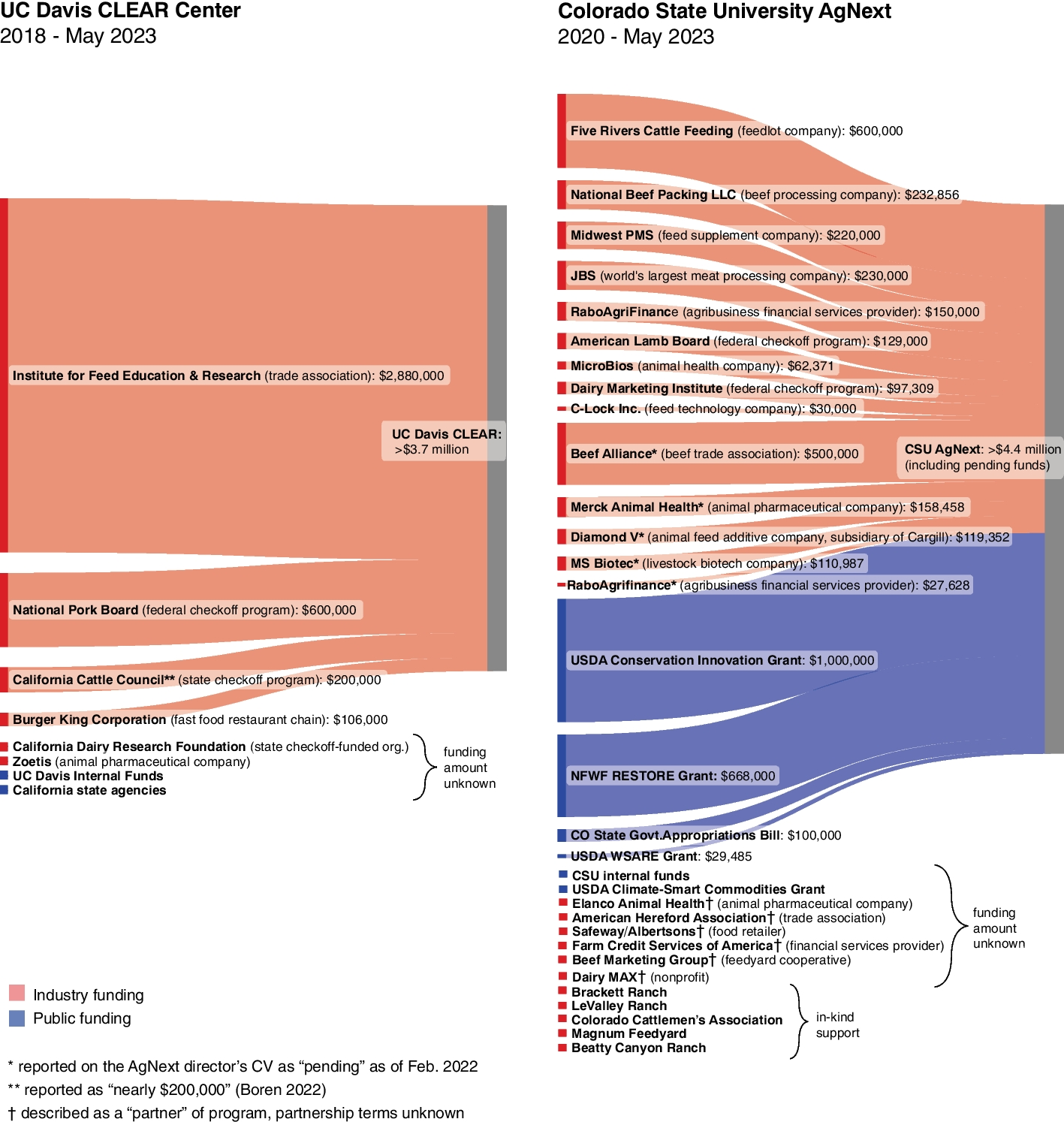34
The animal agriculture industry, US universities, and the obstruction of climate understanding and policy - Climatic Change
link.springer.comThe 2006 United Nations report “Livestock’s Long Shadow” provided the first global estimate of the livestock sector’s contribution to anthropogenic climate change and warned of dire environmental consequences if business as usual continued. In the subsequent 17 years, numerous studies have attributed significant climate change impacts to livestock. In the USA, one of the largest consumers and producers of meat and dairy products, livestock greenhouse gas emissions remain effectively unregulated. What might explain this? Similar to fossil fuel companies, US animal agriculture companies responded to evidence that their products cause climate change by minimizing their role in the climate crisis and shaping policymaking in their favor. Here, we show that the industry has done so with the help of university experts. The beef industry awarded funding to Dr. Frank Mitloehner from the University of California, Davis, to assess “Livestock’s Long Shadow,” and his work was used to claim that cows should not be blamed for climate change. The animal agriculture industry is now involved in multiple multi-million-dollar efforts with universities to obstruct unfavorable policies as well as influence climate change policy and discourse. Here, we traced how these efforts have downplayed the livestock sector’s contributions to the climate crisis, minimized the need for emission regulations and other policies aimed at internalizing the costs of the industry’s emissions, and promoted industry-led climate “solutions” that maintain production. We studied this phenomenon by examining the origins, funding sources, activities, and political significance of two prominent academic centers, the CLEAR Center at UC Davis, established in 2018, and AgNext at Colorado State University, established in 2020, as well as the influence and industry ties of the programs’ directors, Dr. Mitloehner and Dr. Kimberly Stackhouse-Lawson. We developed 20 questions to evaluate the nature, extent, and societal impacts of the relationship between individual researchers and industry groups. Using publicly available evidence, we documented how the ties between these professors, centers, and the animal agriculture industry have helped maintain the livestock industry’s social license to operate not only by generating industry-supported research, but also by supporting public relations and policy advocacy.
You must log in or register to comment.


